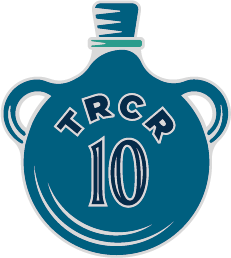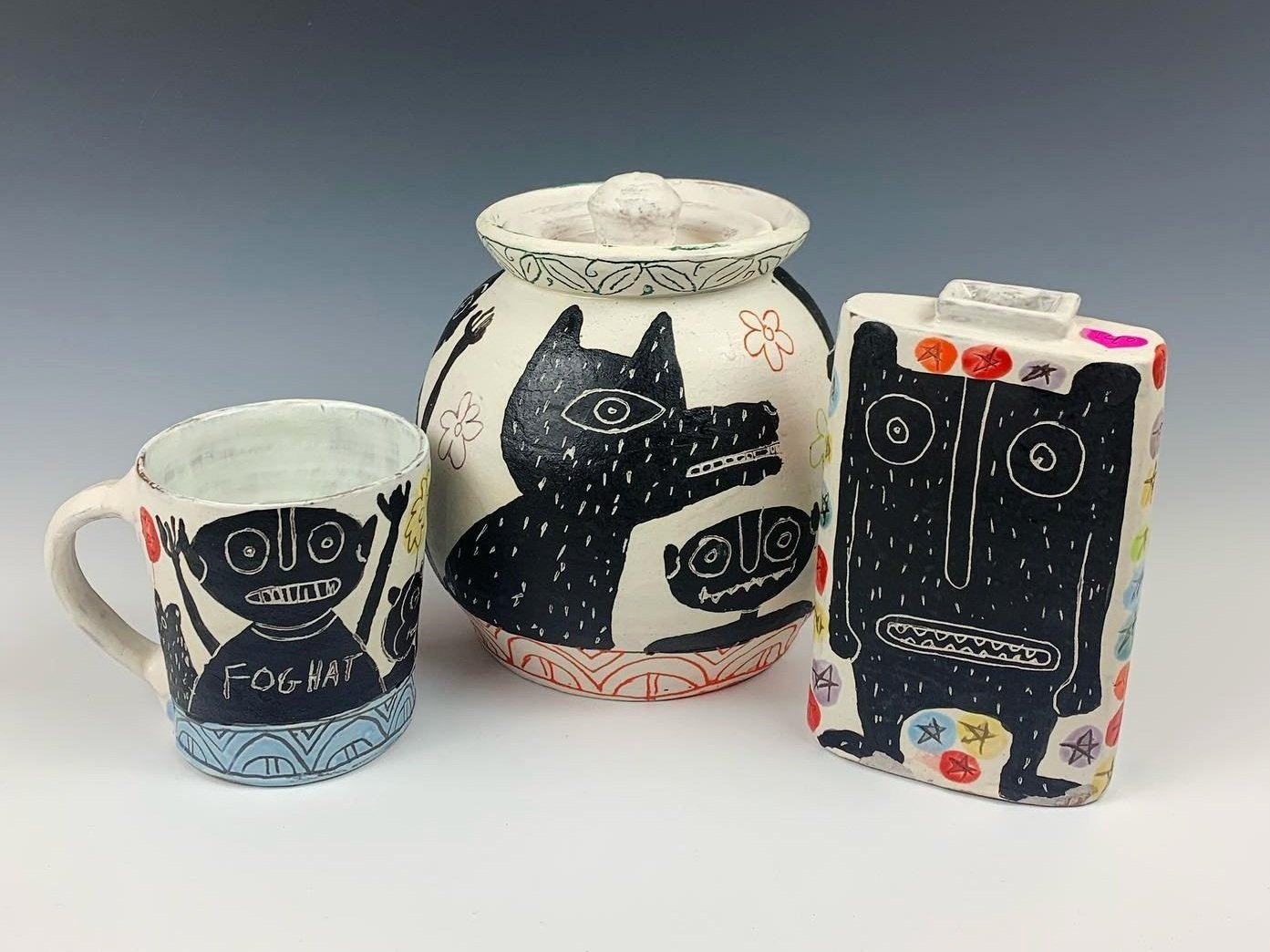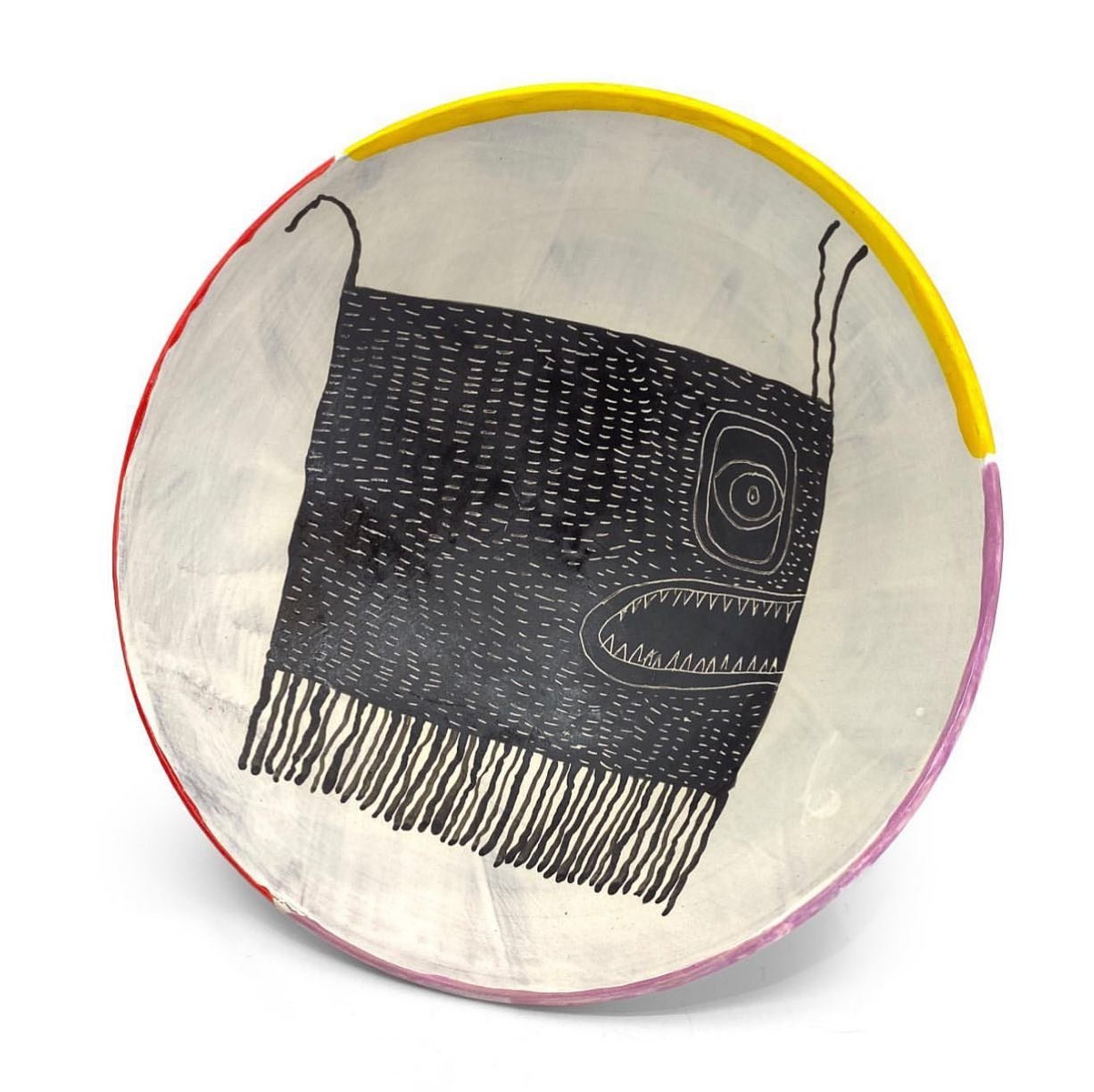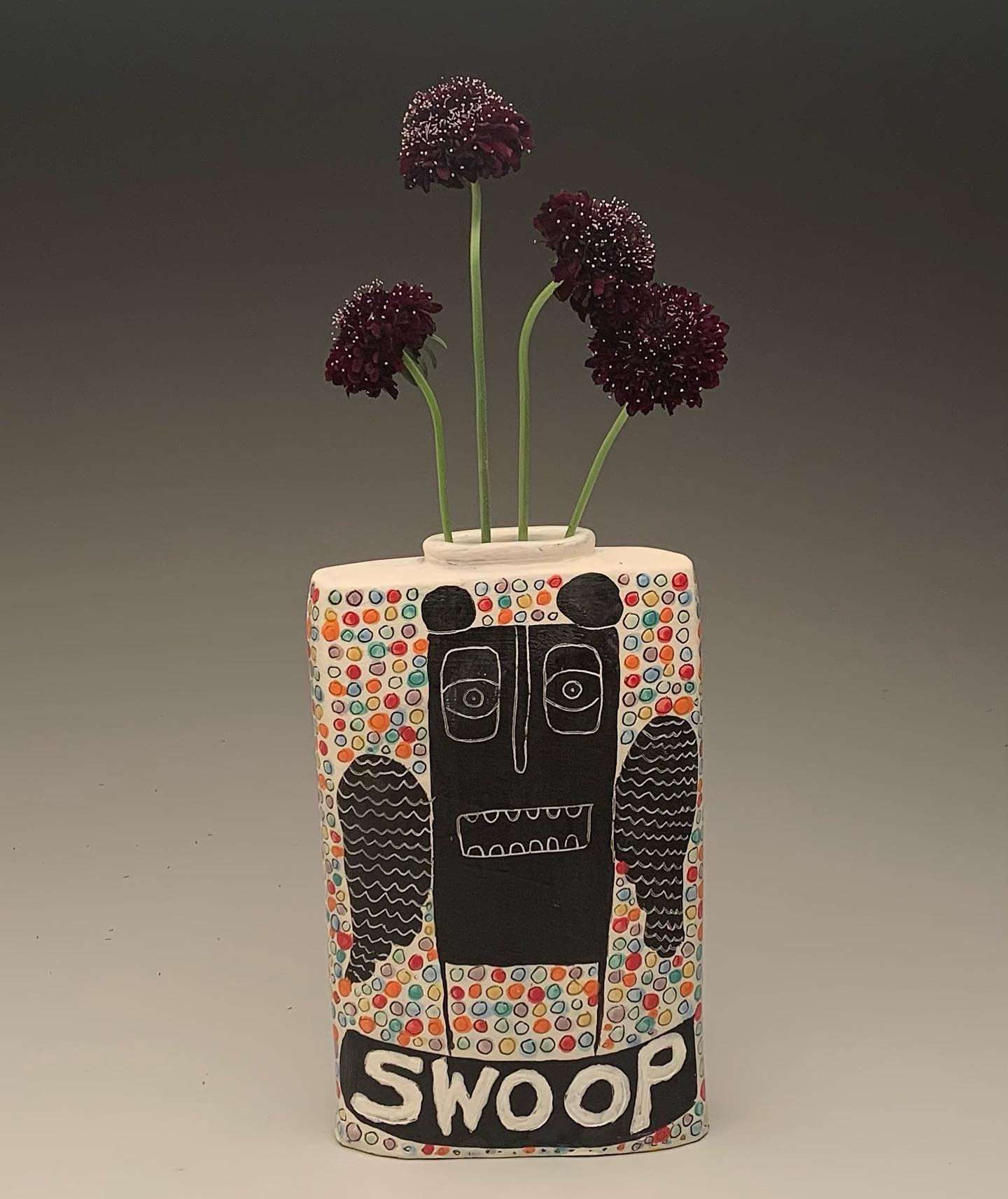452: Kurt Anderson on the humor in his art and Rebecca Harvey on the Archie Bray residency
Today on the Tales of a Red Clay Rambler Podcast I have an interview with Kurt Anderson. His ceramics and paintings feature compositions of robots, animals, and human hybrids that are visually playful and filled with humor. In our interview we talk about color dynamics and trusting your aesthetic voice. To see examples of his work, visit @kurtandersonpottery on Instagram. To start the episode I talk with Rebecca Harvey, the new director of the Archie Bray Foundation, about the residency program at the Bray. The deadline for this year’s residency applications is February 15th. To find out more visit www.archiebray.org/residencies.
NCECA will be hosting their first ever podcast room at this year’s conference in Cincinnati. Thursday March 16th and Friday March 17th there will be six hour-long live tapings of popular ceramic podcasts. I’ll be hosting an episode titled Taking an Environmental Approach to Making with Marianne Chénard, Julia Galloway, and Ché R. Ochtli on Friday at 2:30 in room 212. Please drop in to experience this new interactive format for discussion at NCECA. For more information visit www.nceca.net.
Today’s episode is brought to you by the following sponsors:
For the past 100 years, AMACO Brent has been creating ceramic supplies for our community ranging from underglazes to electric kilns, and they have no plans of slowing down. www.amaco.com
The Rosenfield Collection of Functional Ceramic Art is an on-line source for research and inspiration, featuring images of thousands of objects made by over 800 artists. www.Rosenfieldcollection.com.




